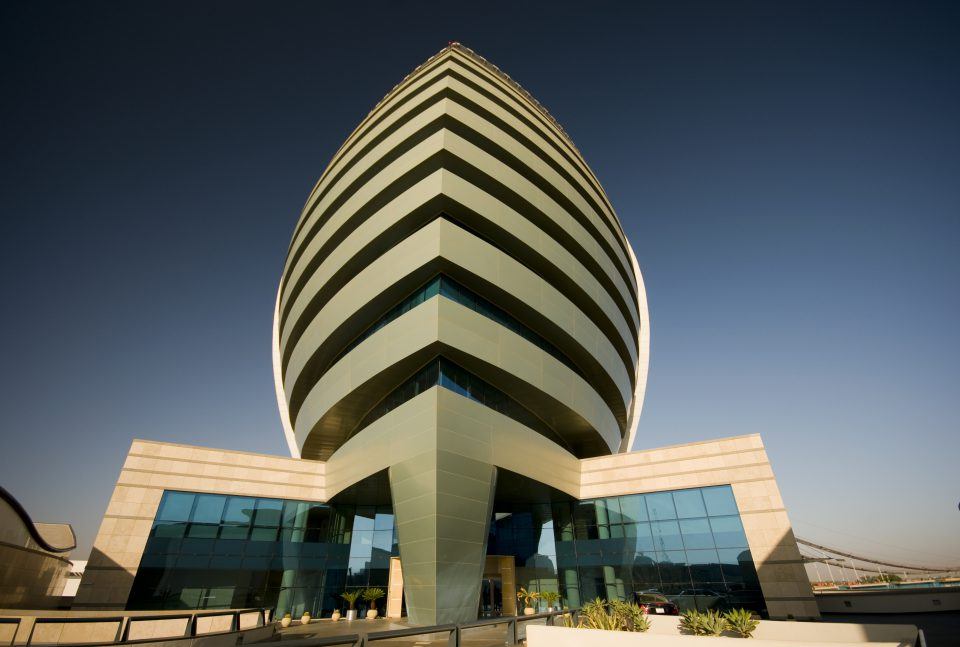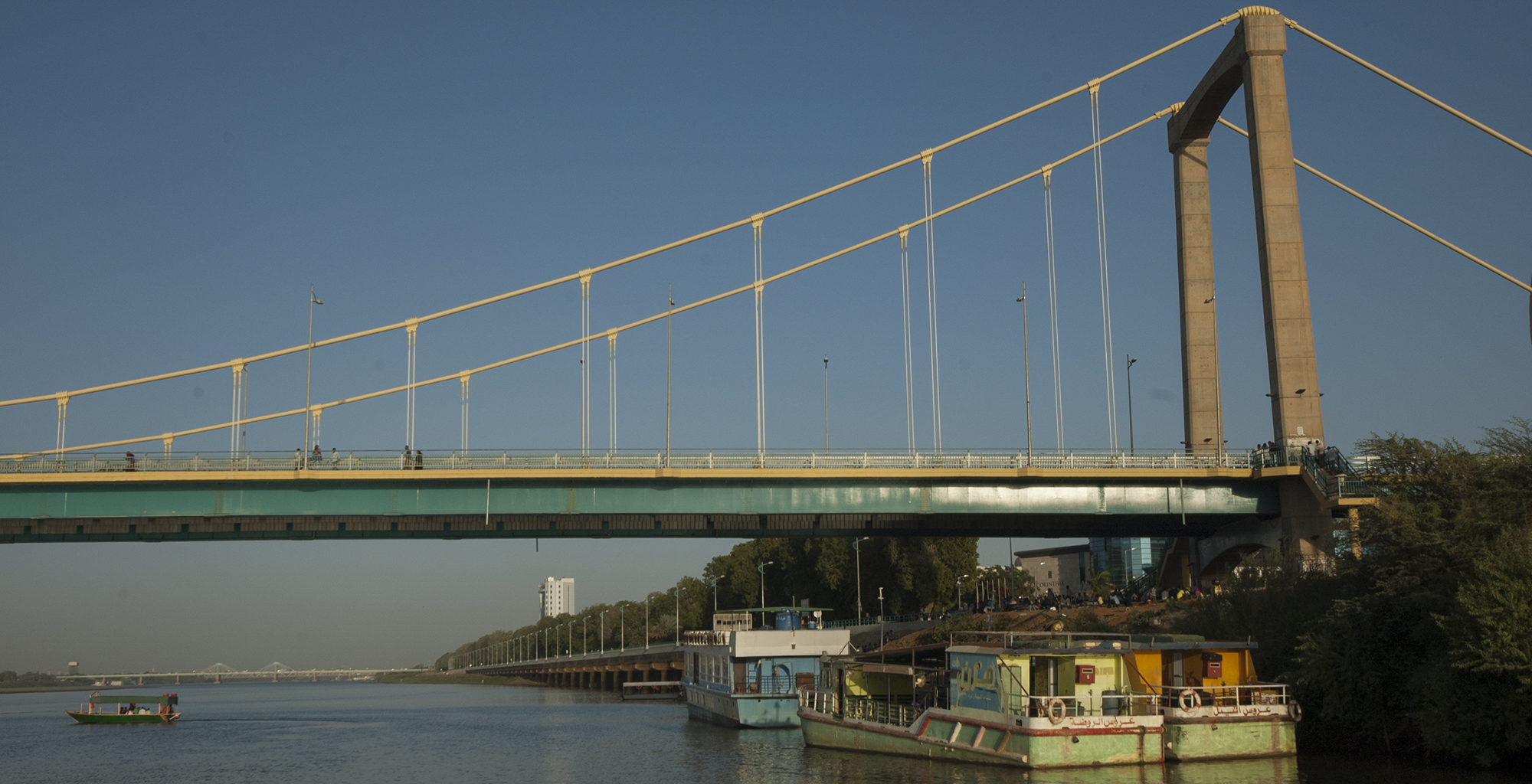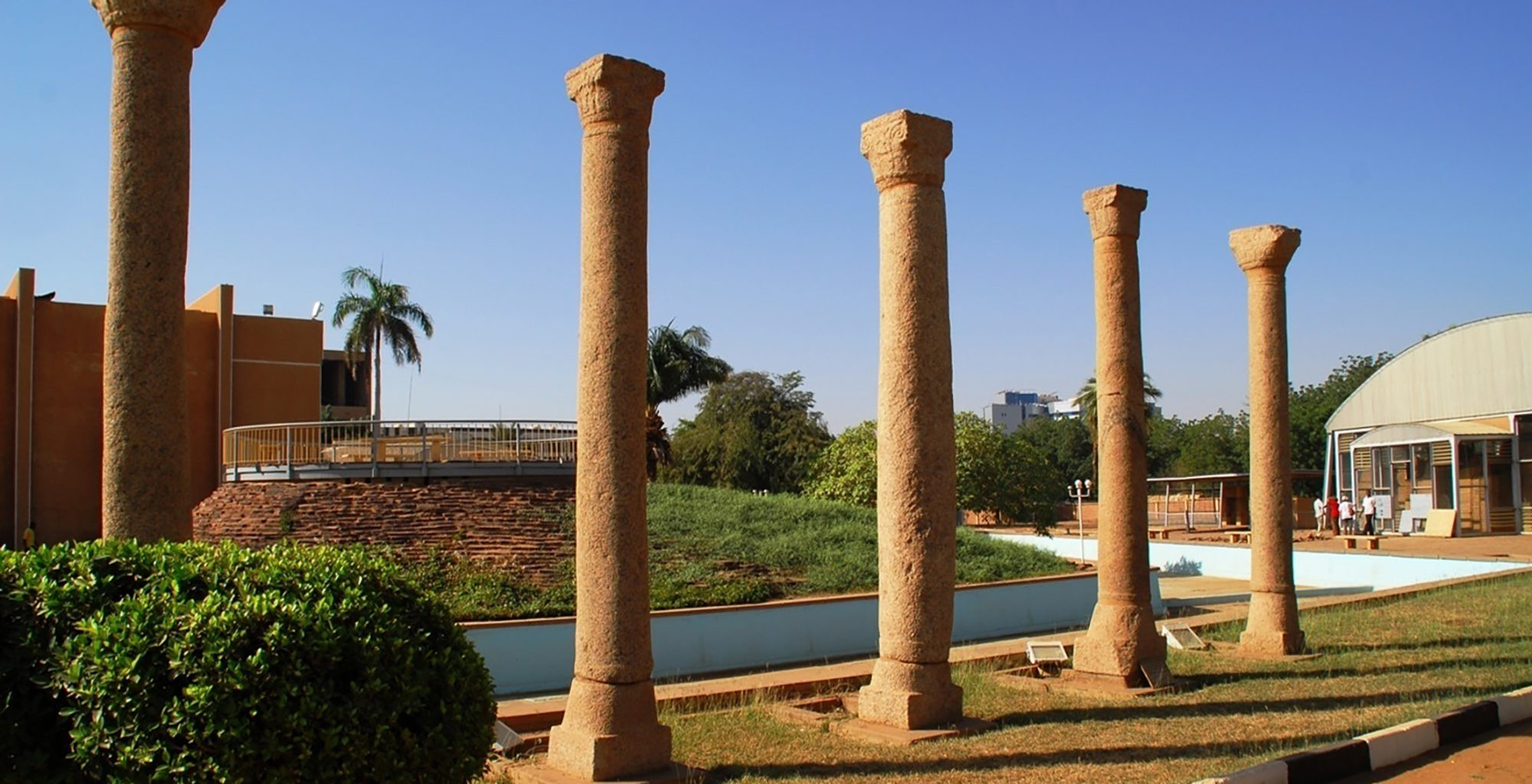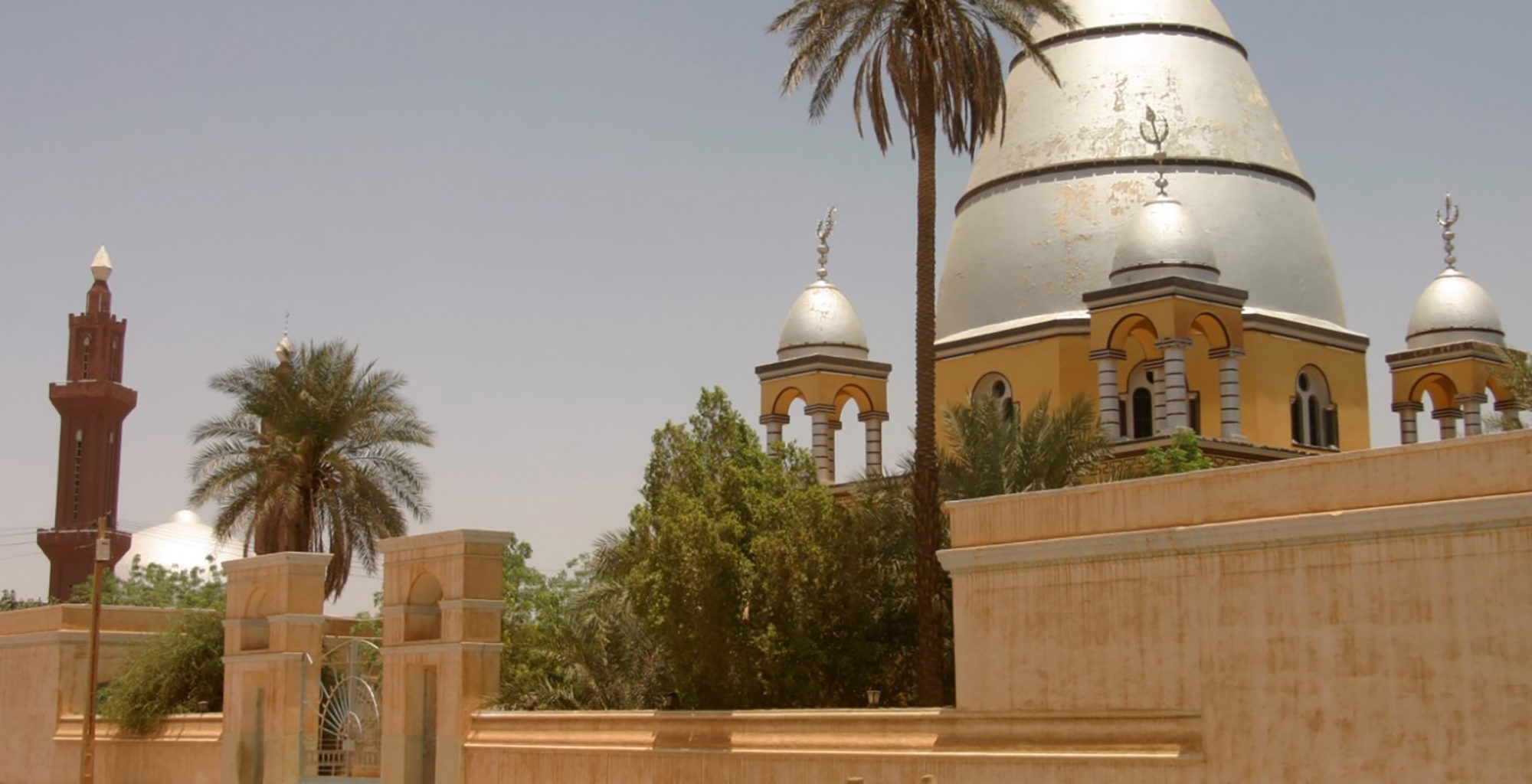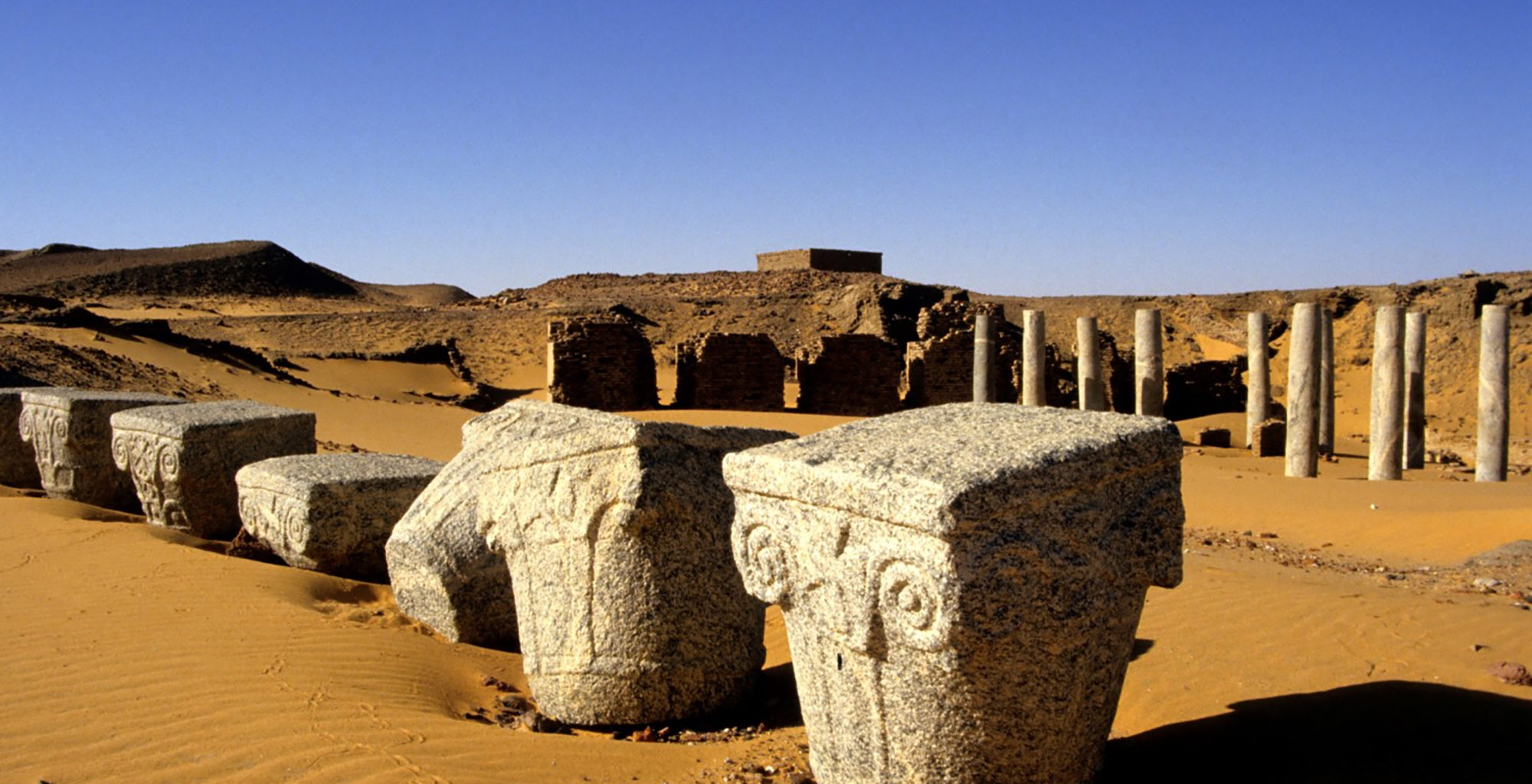Khartoum, once the centre of the slave trade to Egypt, was the capital of the whole of Sudan until mid 2011 when the South voted in a referendum for independence. The vote, agreed as a part of a Comprehensive Peace Agreement in 2005, was a foregone conclusion after decades of civil war since independence from the British in 1956. A largely Christian South Sudan is now on its own and Khartoum rules the largely Muslim north that clings to an Arab heritage. Sudan – only the south changed its name to South Sudan – finds itself in an ambiguous position. Wandering around in Khartoum the traveller may not be sure if they are in the Middle East or Africa.
Khartoum has expanded and developed enormously since oil revenues – shared 50/50 with the South since 2005 – came on stream a decade ago, although as yet it does not ostentatiously demonstrate the wealth gap found in many African cities. It still has a rather dusty provincial look to it compared to its East African neighbours, and its comprehensive Muslim culture is evident everywhere.
Walking the streets of Khartoum late at night, after nothing stronger than a mango juice, is a relaxed and pleasant experience with no hint of a threat as a foreigner.
The confluence of the two Niles dominates and divides Khartoum and the riverbanks provide an especially good spot for taking sweet black tea with spices (chai) at any time but particularly in the evenings when huge numbers of residents come out and sit and chat in the warm air. Sudanese chai and coffee are very sweet, very aromatic, and very difficult to refuse and invariably offered on any occasion.
One of Charles George Gordon’s – the esteemed British General tasked with putting down a Sudanese rebellion in the 1880s – old steamers is still to be found at the Yacht Club and just across the road is the rebuilt old palace where he stood praying and watching the Mahdi’s forces on the far bank. You can see the type of sword or spear that may well have taken his life in the Khalifa’s house where you can also see Gordon’s own gibba, a loose gown like garment. The Mahdi died very soon after Gordon and was succeeded by his lieutenant the Khalifa who himself was despatched by the British, sometime after the battle of Omdurman, just outside Khartoum.
Small-scale industry and agricultural schemes abound particularly along the roads going south and give the impression of serious use of oil money. The very smart rows of army barracks also give a clue to the power in the land.
Khartoum has been dry ever since the entire alcohol stock of the old colonial style Sudan Club – itself no longer – was thrown into the Nile in 1983. Nightlife, unsurprisingly, is therefore rather quiet.
Omdurman to the north of the Nile is home to the Mahdi’s tomb and to the Khalifa’s house – an impressive camel market selling the lucky ones as racing camels to Saudi Arabia and the unlucky ones to the local butcher. Omdurman also has regular demonstrations by Whirling Dervishes of their Sufi version of Islam.
Sudanese fare is definitely underrated; it may be the same selection for breakfast lunch and dinner but it is a delicious mix of mainly many types of beans (ful), onions, tomatoes, goat’s cheese, rather chewy meat and Arabic bread. Puddings, usually put on the table at the same time, include delicious yoghurt, and are not to be missed unless you don’t have a sweet tooth. Karkaday, a drink made from crushed hibiscus leaves or the juices made from the fruit of the Baobab tree, are Sudanese specialities.
See below for accommodation in this area.
